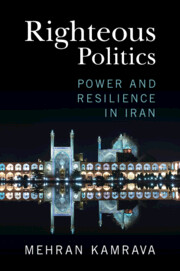Drawing on contemporary history and empirical research, this article revises traditional rentier state theory, which fails to account for the existence of Islamist movements in states accruing substantial outside wealth. Rentier state theory expects that citizens of such states will form opposition blocs only when their stake in rent income is threatened. Examining the development of Muslim Brotherhood affiliates in two archetypal rentier states, or super-rentiers, in the Gulf—Qatar and the United Arab Emirates—this article shows that ideology rather than rent motivated the formation of independent Islamist movements. This research helps to break the causal link established by rentier state theory between oil rents and lack of politically relevant Islamist organizations. We find that the presence of oil rents, instead of rendering Islamist complaint politically irrelevant, shapes the ways in which Islamist movements seek to influence government policies.


